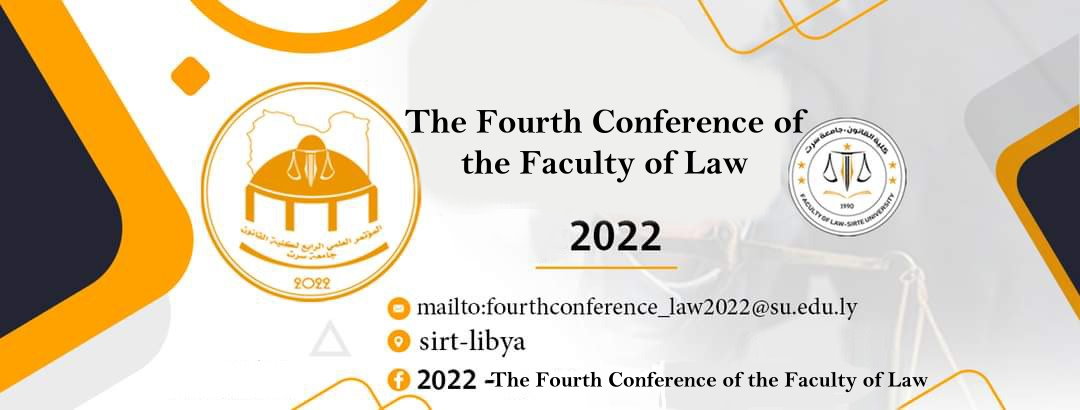

About the Conference
Objectives of the Conference
:The conference aims to
- Introducing and raising awareness about the importance of public policies in achieving stability and empowering state-building
- Highlighting the role of the legislator as one of the fundamentals in the formulation of public policies.
- Highlighting the role of government institutions and civil society organizations in formulating and adopting public policies.
- Identifying negative aspects of the formulation and adoption of public policies and suggesting appropriate solutions.
Dates
03-01-2022
Announcement
03-01-2022
15-01-2022
Deadline to submit proposals
25-02-2022
Deadline to submit the complete research
25-02-2022
24-25 مايو 2022م
Conference Days
Themes of the Conference
- The concept of public policies, difficulties, and challenges to the adoption and implementation in Libya.
- Modern criminal policies in criminalization and punishment.
- The role of government and civil society organizations in the formulation and adoption of public policies.
- The significance of adopting the Constitution and a political system compatible with the current Libyan situation.
- The significance of legal formulation regulating policy legislation.
- The interference of domestic and international provisions on democracy and human rights legislation.
- The role of public policies in trade and investment.
- The prominent role of the general budget in financial policy.
Research Papers The Fourth Conference of the Faculty of Law

Closing Statement & Recommendations
In conclusion, the presented research papers recommend the following:
- To emphasize the prominence of the cooperation of all society members to create effective public policies that reflect the needs and aspirations of Libyan society, as well as suggest drafting a general national charter.
- To emphasize the prominence of a consensual constitution, which includes the foundations of state-building, as a resolution for the Libyan crisis.
- To support civil society organizations, review the legislation governing them, hence, creating effective organizations that have a positive impact on society.
- To reform the electoral system and allow the participation of political parties and entities in the electoral process, following national legislation.
- To reform tax collection institutions to increase people's confidence in the state's tax system, and reviewing legislation related to Tax Authority to keep up with changes at the local and international levels.
- To work on achieving justice in distributing wealth between different cities and regions.
- To fight against financial and administrative corruption to re-trust government institutions.
- To consolidate financial, economic, and banking policies in accordance with deliberate procedures to improve the situation of Libya's economy.
- TTo regularly update Libyan legislation in accordance with the world's information development, including criminalization, punishment, and the rules of evidence.